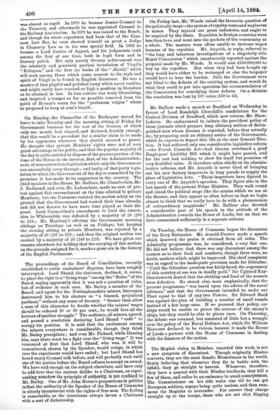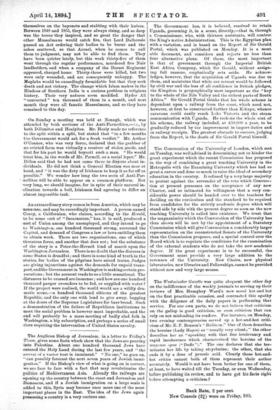The Moplah rising in Malabar, reported this week, is not
a new symptom of discontent. Though originally Hindoo converts, they are the most fanatic Mussulmans in the world,. firmly believing that whenever they die in battle with the infidel, they go straight to heaven. Whenever, therefore,. they have a quarrel with their Hindoo landlords, they kill a• few of them, and retire to an eminence to await consequences. The Commissioner on his side waits also till he can get. European soldiers, sepoys being quite useless, and then sum- mons the Moplahs to surrender. For answer they charge straight up to the troops, those who are not shot flinging
themselves on the bayonets and stabbing with their knives. Between 1848 and 1855, they were always rising, and so deep was the terror they inspired, and so great the danger that -other Mussulmans would catch fire, that Lord Dalhousie passed an Act ordering their bodies to be burnt and the ashes scattered, so that Azrael, when he comes to call them to judgment, may not be able to find them. They have been quieter lately, but this week thirty-five of them went through the regular performance, murdered five Nair landholders, and when a company of the Dorset Regiment .appeared, charged home. Thirty-three were killed, but two were only wounded, and are consequently unhappy. The Moplahs would be exceedingly formidable but that they seek -death and not victory. The change which Islam makes in the Hindoos of Southern India is a curious problem in religious history. Their very natures seem modified. Hyder Ali -" converted " ten thousand of them in a month, and next month they were all fanatic Mussulmans, and so they have -remained to this day.



































 Previous page
Previous page